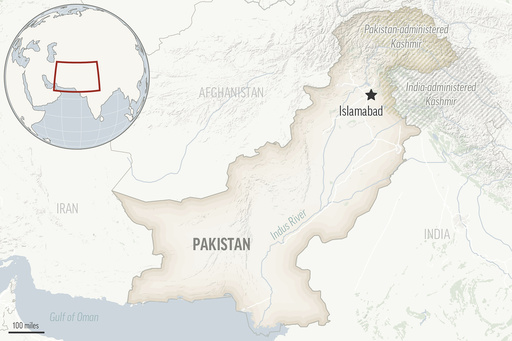
QUETTA, Pakistan — In a significant escalation of violence, Pakistani military forces clashed with separatist insurgents in the troubled northwestern province of Balochistan, resulting in the deaths of 18 paramilitary personnel and 23 rebels. This confrontation, described by officials as one of the most severe in recent times, occurred when insurgents established roadblocks along a crucial highway in the Kalat area, which shares a border with Afghanistan.
The military reported that casualties were sustained by the troops during the confrontations, as they attempted to dismantle the barricades on Saturday morning. Following the fighting, the military successfully cleared the roadblock and announced that “the perpetrators, facilitators and abettors of this heinous and cowardly act will be brought to justice.” In their report, they mentioned the recovery of 12 bodies of insurgents, along with the killing of an additional 11 insurgents during ongoing operations.
In 2024, there has been a noticeable 40% increase in militant assaults by various factions compared to the previous year. Despite this, military officials claimed that their operations in December resulted in the deaths of 925 insurgents, marking a five-year record, while acknowledging that 383 soldiers lost their lives in confrontations during the last year.
The violent incidents have drawn sharp criticism from national leaders, including President Asif Ali Zardari and Prime Minister Shehbaz Sharif. Both have commended security personnel for their efforts in combating terrorism and reaffirmed their commitment to continuing operations in Balochistan until insurgent threats are fully neutralized.
The Baloch Liberation Army (BLA) has taken responsibility for the attacks, with spokesperson Azad Baloch asserting that their fighters achieved substantial success during the Kalat confrontation. He claimed that roughly 100 of their insurgents participated in coordinated assaults on security forces in the area.
Abdullah Khan, managing director of the Pakistan Institute for Conflict and Security Studies, emphasized that the insurgents’ capacity for executing multiple assaults and controlling key routes has grown evidently. He noted that such violence represents one of the most lethal incidents recorded since last year and suggested a 42% increase in militant attacks observed in January alone, where 74 separate incursions were reported nationwide.
The BLA frequently targets security forces, as well as civilians and foreign workers, particularly associated with Chinese-funded projects in Pakistan. A notable attack in November involved a BLA suicide bomber at a train station in Quetta, leading to the death of 26 individuals, including military personnel.
In response to the surge in insurgent activity, military and police operations against these groups have intensified in Balochistan, a province rich in oil and minerals, and a hub for the Baloch ethnic minority, which has long claimed systemic discrimination from the central government.
The region has historically been a hotbed for insurgency, with various separatist factions attempting to secure independence by targeting military installations. The BLA is reportedly supported by the Pakistani Taliban (Tehreek-e-Taliban Pakistan) and has been resourceful with weaponry acquired following the Taliban’s resurgence in neighboring Afghanistan in 2021. The presence of the Islamic State group is also noted within the province, complicating the security landscape further.

